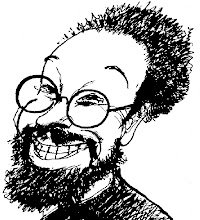Responding to those who (simplistically) thought Jackson's plastic surgery a sign of his self-hatred and the singer's desire "to eradicate his Negroid features," Crouch launched a long riff on masks and how we Americans improvise our identities; on practices of ritual mutilation and scarification in Africa; and on minstrel shows and gender bending.
It was Crouch's conclusion that got me, though, when I reviewed the book when it came out in 1997.
"When a man's power is found in an adolescent form, time impinges upon his vitality," he wrote. "If sufficiently spooked, he might be moved to invent a world for himself in which all evidence that he was ever born a particular person at a particular time is removed. That removal might itself become the strongest comment upon the inevitable gloom that comes not of having been given too much too soon but of having been convinced that one is important only so long as he or she is not too old."

